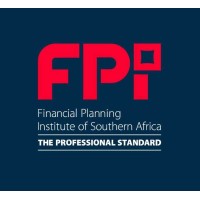By Sydney Sekese, CFP® professional and member of the Financial Planning Institute
This year, a significant number of countries will be holding elections. According to available information, at least 64 countries and the European Union are scheduled for national elections. With the South African election a few months away, staying informed and up-to-date with the latest political news is paramount to citizens who intend on making their mark on this year’s ballot paper.
It is common human behavior to be emotional during this voting season. Similarly, personal financial matters should not be emotionally approached. Choosing the correct financial product could be likened to choosing the correct political leader.
Choosing the Right Financial Product: A Parallel to Political Elections
In finance, as in the realm of politics, the act of choosing is a powerful exercise of freedom and responsibility. The decision to elect a political leader or a financial product can have long-lasting implications for an individual’s life and society.
Here is how the two seemingly disparate choices are more aligned than one might think.
The Campaign Trail vs. Financial Marketing
Just as political candidates campaign to win votes, financial products are marketed to gain customers. Both realms involve a barrage of information, persuasive tactics, and promises of future prosperity. The electorate is tasked with cutting through the noise to discern the true value of a candidate’s platform; much like an investor must sift through marketing jargon to understand the real worth of a financial product.
Manifestos and Prospectuses: The Promises Made
A political manifesto outlines a candidate’s vision and promises, while a financial prospectus details the potential returns and risks associated with an investment. Both documents are critical in informing the decision-making process, requiring a keen eye to evaluate the feasibility and integrity of the promises made.
Voting and Investing: Acts of Trust
Casting a vote for a political leader is an act of trust in their ability to govern and deliver on their promises. Similarly, choosing a financial product is an investment of trust in the management’s capability to yield returns. In both cases, the decision is based on a leap of faith, available evidence, and the individual’s judgment.
The Impact of Choices
The consequences of political elections ripple through the fabric of society, affecting governance, policy, and public services. The selection of a financial product impacts personal wealth, financial security, and, in the case of collective investment schemes, the broader economy. Both choices carry weight and warrant careful consideration.
Accountability and Performance
Post-election, politicians are held accountable for their performance in office, with the possibility of being voted out in the next cycle. Financial products, too, are subject to performance reviews, and investors have the power to ‘vote’ with their capital, staying invested or moving it elsewhere based on returns.
Diversity of Options
Just as a healthy democracy thrives on a diversity of political parties and candidates, a robust financial market offers a variety of products to suit different needs and risk appetites. The freedom to choose from multiple options empowers the electorate and investors alike, fostering competition and innovation.
Informed Decisions: The Keystone
The cornerstone of both democratic elections and financial product selection is access to accurate information. An informed electorate is essential for a functioning democracy, just as an informed investor is crucial for a sound financial decision. Education and transparency are paramount in both arenas to ensure that choices are made with clarity and confidence.
In conclusion, the process of electing a political leader and choosing the right financial product are both critical decisions that require due diligence, critical thinking, and an informed approach. While the contexts may differ, the principles of choice, trust, and accountability remain universal, underscoring the importance of making informed decisions in all aspects of life.





